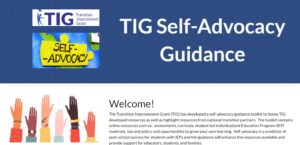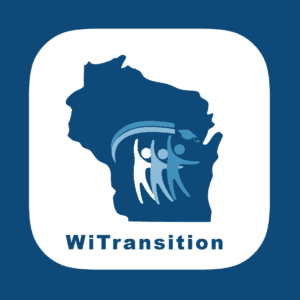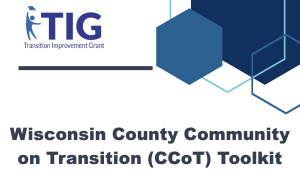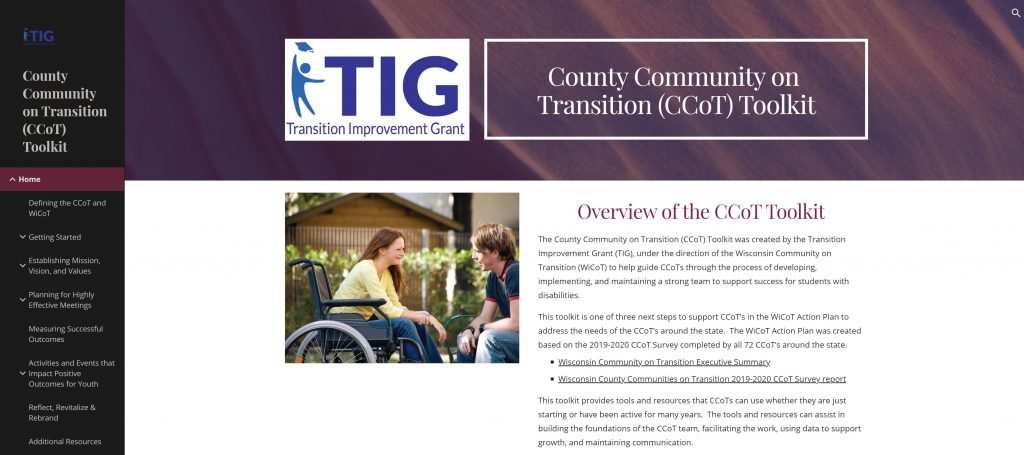County Communities on Transition
A County Community on Transition (CCoT) is a group of transition partners who have made the commitment to collaborate around identifying barriers to transition planning, to organize the supports needed and to develop solutions for youth with disabilities in the local county they serve. The CCoT creates their own vision, mission, and/or essential intent as it relates to transition in their community. This partnership is essential to assist in the pathways for youth to explore employment, training and postsecondary education, and engage in skills to be independent in their home and community while building self-advocacy skills. Suggested CCoT members include but are not limited to:
- Secondary Educators (ie. School Administrators, Special and General Teachers, Career and Technical Education Teachers)
- Parent/Family/Youth (ie. Family members, youth with disabilities, family representative, advocates)
- Service Systems (ie. Division of Vocational Rehabilitation (DVR). aging and disability resource centers (ADRC), WIOA adult and youth programs, supported employment providers, higher education, independent living centers, mental health providers, foster care representatives)
- Community-Based Organizations (ie. local employers, Job Corps, apprenticeship programs, recreation and social group organizations, disability advocacy groups, faith based communities, transportation providers, juvenile justice, community leaders)
The key to CCoT success is sharing the work as a local county, establishing effective communication practices and creating new relationships to better work together and increase collaboration. Each CCoT is unique and has its own history of providing opportunities for students and families in their county.
The County Community on Transition (CCoT) Toolkit was created by the Transition Improvement Grant (TIG), under the direction of the Wisconsin Community on Transition (WiCoT) to help guide CCoTs through the process of developing, implementing, and maintaining a strong team to support success for students with disabilities.
This toolkit is one of five next steps to support CCoT’s in the WiCoT Action Plan to address the needs of the CCoT’s around the state.
This toolkit provides tools and resources that CCoTs can use whether they are just starting or have been active for many years. The tools and resources can assist in building the foundations of the CCoT team, facilitating the work, using data to support growth, and maintaining communication.
We have also added a NEW resource, the CCoT Team RESET PowerPoint. This PowerPoint is meant to help teams pause, reflect, and realign their work by reviewing current practices, identifying priorities, and setting clear next steps to strengthen transition outcomes. It is designed as a tool to be used throughout the year to keep teams focused and moving forward.
To explore a CCoT in your area, click on the map below or contact Pam Jenson at (608) 921-1400.
Select a County
- Adams
- Ashland
- Barron
- Bayfield
- Brown
- Buffalo
- Burnett
- Calumet
- Chippewa
- Clark
- Columbia
- Crawford
- Dane
- Dodge
- Door
- Douglas
- Dunn
- Eau Claire
- Florence
- Fond Du Lac
- Forest
- Grant
- Green
- Green Lake
- Iowa
- Iron
- Jackson
- Jefferson
- Juneau
- Kenosha
- Kewaunee
- La Crosse
- Lafayette
- Langlade
- Lincoln
- Manitowoc
- Marathon
- Marinette
- Marquette
- Menominee
- Milwaukee
- Monroe
- Oconto
- Oneida
- Outagamie
- Ozaukee
- Pepin
- Pierce
- Polk
- Portage
- Price
- Racine
- Richland
- Rock
- Rusk
- Sauk
- Sawyer
- Shawano
- Sheboygan
- St. Croix
- Taylor
- Trempealeau
- Vernon
- Vilas
- Walworth
- Washburn
- Washington
- Waukesha
- Waupaca
- Waushara
- Winnebago
- Wood
Adams
Loading information...




 TIG Self-Advocacy Guidance Google Site
TIG Self-Advocacy Guidance Google Site 
 Wisconsin County Community on Transition (CCoT) Toolkit
Wisconsin County Community on Transition (CCoT) Toolkit 